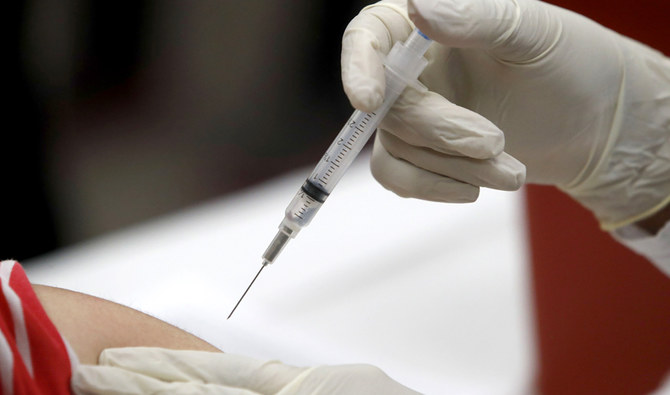DHAKA: People around the world need to fight against misinformation campaigns that hamper vaccination efforts, Bangladeshi immunologist Dr. Firdausi Qadri told Arab News in an exclusive interview, as her efforts were honored during the 22nd edition of the L’Oreal-UNESCO for Women in Science Awards last week.
“In many countries — not only in developing countries, in developed ones too — there is a new sentiment that vaccination will cause some diseases in children,” Qadri said at her office at the International Center for Diarrheal Disease Research, Bangladesh in Dhaka.
These misinformation campaigns result in “vaccine hesitancy,” which leads to outbreaks of otherwise preventable diseases.
The 22nd L’Oreal-UNESCO for Women in Science Awards recognized five female scientists from different regions of the world in the field of life sciences.
Qadri’s award is for her outstanding work to understand and prevent infectious diseases affecting children in developing countries and promote early diagnosis and vaccination.
“Before launching any vaccine, we do trials in different phases to detect their adverse effects, if there are any. Even after the vaccine is launched, we monitor its impacts,” she said, stressing that raising awareness on the importance of immunization is essential and should be directed by governments.
In different countries, misinformation campaigns have different shapes and consequences. In developed nations, they can lead to outbreaks of diseases such as measles and mumps, which the World Health Organization identified as one of the top 10 global health threats in 2019.
In countries like Pakistan, vaccine hesitancy in certain areas is related to cultural norms. “Sometimes doctors are not allowed into homes because they are males,” Qadri said. “There are only few countries in the world which are not polio-free, Pakistan is one of them … many people in Pakistan are not very aware about the benefits of vaccinations.”
In Bangladesh, which is also a developing country, immunization awareness is much higher, but self-sufficiency is still lacking and can affect the country’s efforts to eradicate diseases such as cholera.
“We need to concentrate on cholera vaccines. According to the national cholera control plan, we will require almost 180 million doses of oral cholera vaccine in the next five years to eliminate it. Nobody can give us that vaccine if it’s not produced locally,” she said.
While Bangladesh has obtained the cholera vaccine license and is expected to start producing it soon, Bangladeshi scientists have no equipment to develop the country’s biological preparations.
“When we want to do very high-quality research, the problem is not lack of knowledge but of equipment and reagents which must arrive in the right condition. Their cold chain must be maintained and they need to come quickly,” Qadri said.
“When people don’t have the facilities, they don’t feel the urge to do good research,” she said, explaining that scientific culture needs to be promoted and financially supported in developing countries.
Qadri has dedicated her award to 500 young researchers who work with her, hoping that the recognition will encourage more Bangladeshi women to choose scientific careers.
“It sets an example for women. We are lacking in the field of science, technology, electronics and mathematics. There is a gender imbalance. I hope with my achievement, the situation will improve to some extent,” she said.
The award, she added, will also people make realize that research is being done in Bangladesh.
Regarding her ongoing research, Qadri explained she is working on the problem of malnourishment in immunization effectiveness.
Malnourished children react differently to vaccines. “They don’t respond like a child in a developed country like in the UK, US or Sweden.
“The burden of pathogens in our system is so high and there are so many infections one after another, which gives rise to enteropathy, making it difficult for a child to respond to a vaccine properly,” she explained.
She is working on it. “Children should grow up to be healthy adults,” the mother of three said, revealing what guides her work and efforts.


























